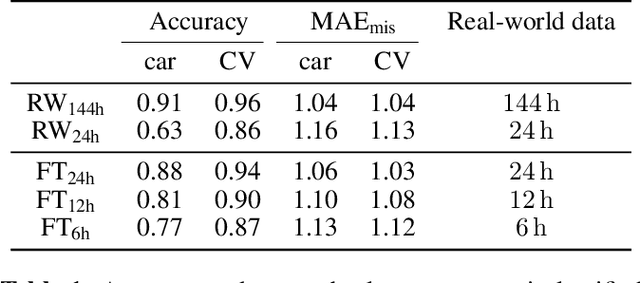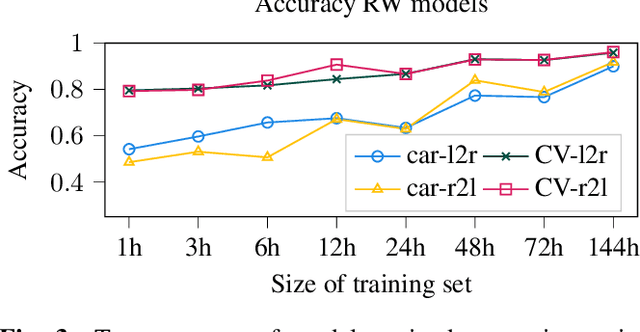Can Synthetic Data Boost the Training of Deep Acoustic Vehicle Counting Networks?
Paper and Code
Jan 17, 2024



In the design of traffic monitoring solutions for optimizing the urban mobility infrastructure, acoustic vehicle counting models have received attention due to their cost effectiveness and energy efficiency. Although deep learning has proven effective for visual traffic monitoring, its use has not been thoroughly investigated in the audio domain, likely due to real-world data scarcity. In this work, we propose a novel approach to acoustic vehicle counting by developing: i) a traffic noise simulation framework to synthesize realistic vehicle pass-by events; ii) a strategy to mix synthetic and real data to train a deep-learning model for traffic counting. The proposed system is capable of simultaneously counting cars and commercial vehicles driving on a two-lane road, and identifying their direction of travel under moderate traffic density conditions. With only 24 hours of labeled real-world traffic noise, we are able to improve counting accuracy on real-world data from $63\%$ to $88\%$ for cars and from $86\%$ to $94\%$ for commercial vehicles.
 Add to Chrome
Add to Chrome Add to Firefox
Add to Firefox Add to Edge
Add to Edge